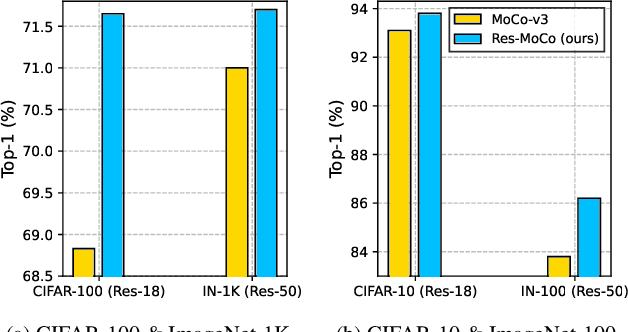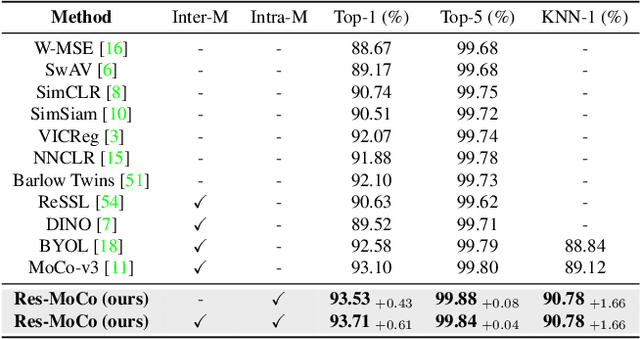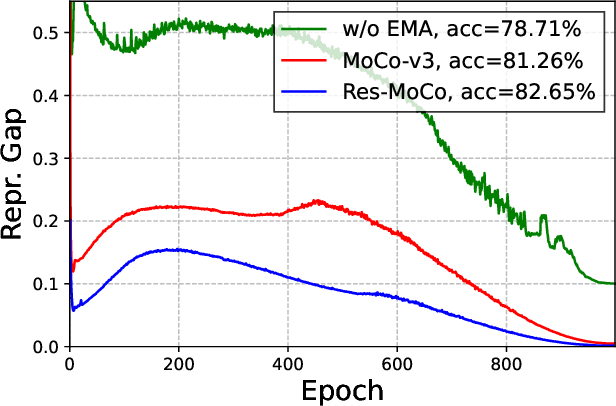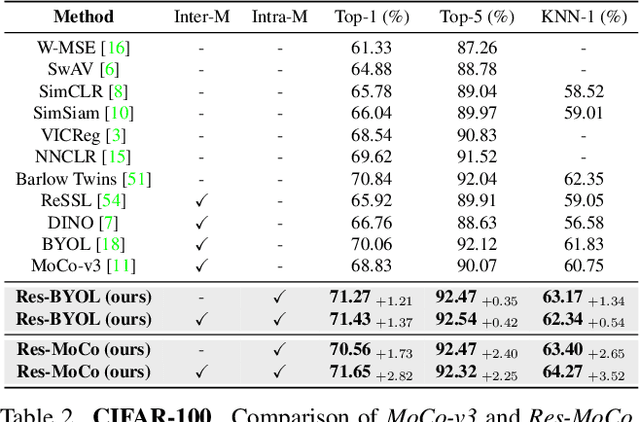Self-Supervised Visual Representation Learning via Residual Momentum
Paper and Code
Nov 21, 2022



Self-supervised learning (SSL) approaches have shown promising capabilities in learning the representation from unlabeled data. Amongst them, momentum-based frameworks have attracted significant attention. Despite being a great success, these momentum-based SSL frameworks suffer from a large gap in representation between the online encoder (student) and the momentum encoder (teacher), which hinders performance on downstream tasks. This paper is the first to investigate and identify this invisible gap as a bottleneck that has been overlooked in the existing SSL frameworks, potentially preventing the models from learning good representation. To solve this problem, we propose "residual momentum" to directly reduce this gap to encourage the student to learn the representation as close to that of the teacher as possible, narrow the performance gap with the teacher, and significantly improve the existing SSL. Our method is straightforward, easy to implement, and can be easily plugged into other SSL frameworks. Extensive experimental results on numerous benchmark datasets and diverse network architectures have demonstrated the effectiveness of our method over the state-of-the-art contrastive learning baselines.
 Add to Chrome
Add to Chrome Add to Firefox
Add to Firefox Add to Edge
Add to Edge